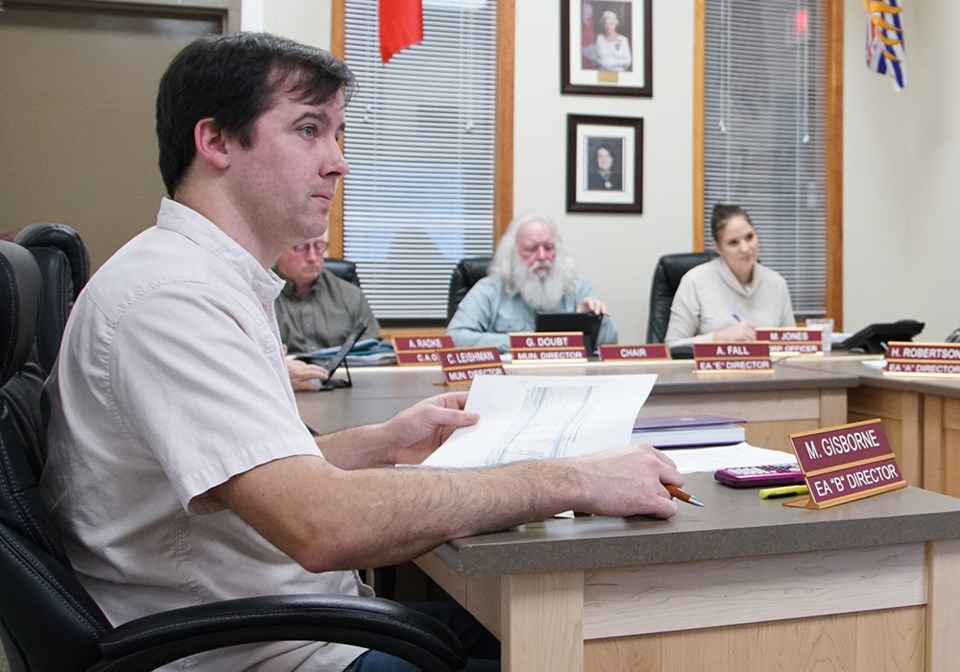A matter that had been planned to be reviewed regarding qathet Regional District (qRD) Electoral Area B director Mark Gisborne at a committee of the whole meeting was moved in camera at his request.
At the November 10 committee of the whole meeting, on the agenda was a report from chief administrative officer Al Radke on the capacity for Gisborne to have face-to-face interaction with staff after Gisborne was censured and sanctioned by the regional board for bullying and harassment, according to Radke’s report. At the beginning of the meeting, when approval of the agenda was to be considered, Gisborne moved that the item regarding face-to-face interaction be moved to the in camera portion of the agenda.
“In my opinion it is clearly a matter of labour relations,” said Gisborne. “It is a follow-up of an in camera discussion and an in camera decision. If this was to be discussed in a public session, I believe it will either limit the discussion on the proposed motion, or will result in confidential information being discussed in the public realm.
“Also, it has come to my attention that there is a potential delegation in relation to the item, and if this motion passes, I would like to move a recommendation that the delegation’s presentation also be moved to the in camera portion.”
Electoral Area C director and board chair Clay Brander asked for a staff opinion on the need to move the matter to the in camera session.
Radke said any dealings with directors – elected officials – are basically not protected or captured by the Community Charter, and therefore, that is why the matter was proposed to be dealt with in the open meeting.
“The content of the report is very minimal, because it’s just dealing with the lifting of a sanction,” added Radke. “If it is the assembly’s desire to go in camera, they may do so, but I don’t think the charter supports that.”
The committee voted unanimously, however, to move the matter to the committee’s in camera session.
Gisborne said that since the item was going to be handled in a closed session, and it had come to his attention that there was a delegation, he wondered if there was need for a motion to move the delegation to the in camera session. He said that since the delegation had a young child with them, it would be more appropriate to handle the in camera session early in the meeting, rather than having them stay until planned in camera session at the end of the meeting.
Electoral Area D director and committee chair Sandy McCormick said the public session had been mapped out and people were waiting for the meeting to proceed by viewing the webcast, so it was her thought to carry on with the public session and hold the in camera session at the conclusion of the public meeting.
Gisborne moved that the committee consider the in camera session immediately after the committee adopted minutes from the previous meeting, which was the next item on the agenda after approval of the agenda. Gisborne’s motion was defeated. The committee then approved the agenda.
The committee then moved onto delegations and enquiries to determine whether the delegation pertaining to the face-to-face interaction would be allowed. Corporate officer Michelle Jones said Bronwyn Gisborne wanted to address the committee.
City director George Doubt said he wanted to know the subject of the delegation before there was a vote on whether the delegation was admissible. Bronwyn said she wanted to address the matter of face-to-face interaction.
Doubt made a motion to consider the request of hearing the delegation within the in camera meeting scheduled for the end of the agenda. Radke said there was precedent for delegations to present in camera.
The committee voted to move the delegation to the in camera session. The committee then voted to move the in camera session regarding the face-to-face interaction as its next item. The committee then went in camera.



